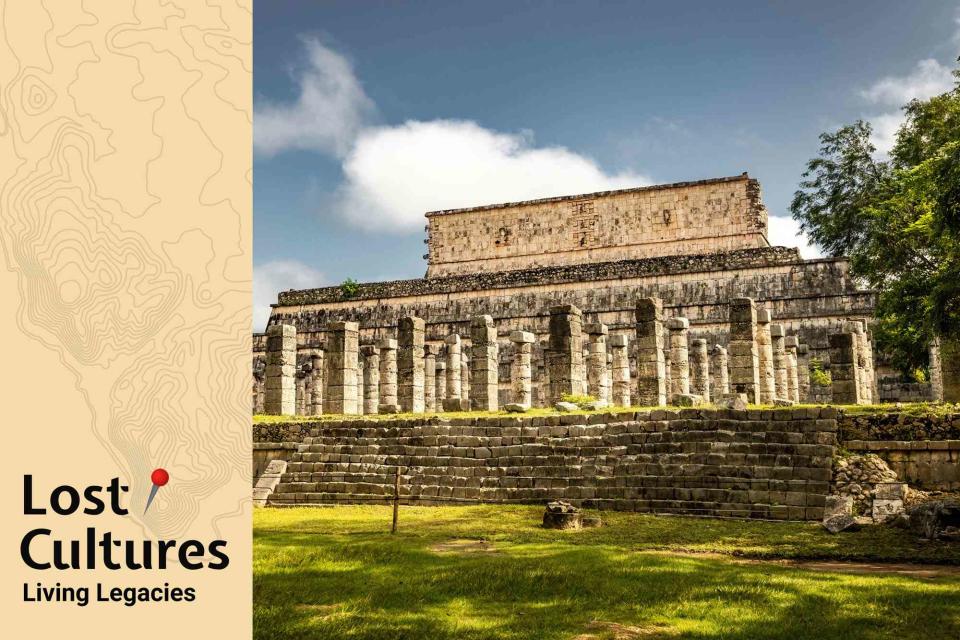What Every Traveler Should Know About the Maya in Mexico's Yucatan Peninsula
Six million people still identify as Maya. It's time we all learn more about them.

Nataliia Milko/Getty Images
Every Wednesday on the Lost Cultures: Living Legacies podcast, host Alisha Prakash, Travel + Leisure's associate editorial director, explores a unique cultural identity around the world, and shares how you can learn more about it on your travels, too.
Mexico's Yucatan Peninsula may be known to many for its awe-inspiring beaches, where the soft, golden sand makes its way to clear, azure waters. But there's more here than meets the eye, particularly when it comes to the region's dynamic and storied history with the Maya.
"The Maya had been around for thousands and thousands of years before the Europeans showed up," said Carlos Rosado van der Gracht, a tour guide, Ph.D. candidate, and editor of Yucatán Magazine. He added, the Maya "built a great many magnificent cities, developed a great civilization, their own mathematics, their own medicine, astronomy — by any measure, truly one of the world's great civilizations."
Though the culture in the region has undoubtedly shifted over the last several hundred years, the Maya remain an integral part of its past and present heritage.
"The culture is changing every day," said Dante Garcia, an underwater archeologist who works with Auberge Resorts, providing exclusive experiences at Etéreo in Riviera Maya. He added, when he arrived in the region some two decades ago, fewer people openly discussed their Maya background, at least in major metropolitan zones. "But if you go to the villages — I have this fortune to find places because they call me to explore cenotes, to explore caves — and they say, 'I'm Maya, very, very proud. That's something really great to appreciate right now."
As the experts explained, almost every element travelers touch in the region — from food to architecture to attractions — is shaped by the Maya, past and present. And despite what you may hear on conspiracy theory television shows, the Maya did not disappear after contact with "ancient aliens." In fact, there are still more than six million Maya living today. And luckily, for all of us, it's easy to find places to honor the culture on our travels.
"There's archeology everywhere. From where I am in my office right now, just 50 meters over there, [there are] Maya structures," Rosado said. "There are over 50 large archeological sites within the city boundaries alone."
Ready to hear more about the history of the Maya in the Yucatan? Listen to Garcia, Rosado, and Prakash dive deep into the neighborhood in Lost Cultures: Living Legacies, available on Apple Podcasts, Spotify, Amazon Music, and everywhere podcasts are available.
Editor’s Note: Please be mindful that this transcript does not go through our standard editorial process and may contain inaccuracies and grammatical errors.
For more Travel & Leisure news, make sure to sign up for our newsletter!
Read the original article on Travel & Leisure.

